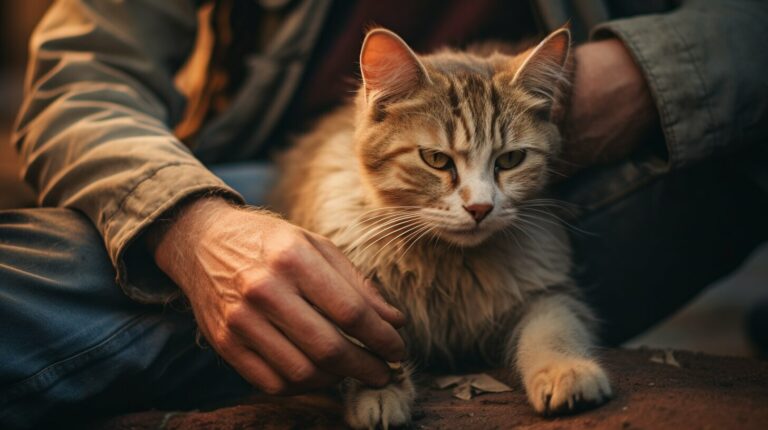Unraveling the Mystery: Why Do Old People Cough So Much?
Coughing is a common symptom among aging adults, but have you ever wondered why older people cough so much? As we age, our respiratory system undergoes changes that can make us more prone to coughing. In this article, we’ll dive deep into the world of coughing amongst the elderly and explore the various factors that contribute to their excessive coughing.
Key Takeaways:
- Chronic coughs in older adults can be caused by postnasal drip, sinus infections, smoking, and lung infections like pneumonia.
- Wet coughs are characterized by thick mucus and can be caused by fluid from the lungs dripping down into the windpipe.
- Dry coughs, on the other hand, have little to no mucus production and are less likely to be related to infection.
- Paroxysmal coughs are sudden, spasmodic coughs that last less than 10 minutes and can be triggered by allergies or asthma.
- Night coughs are more common in older people and can be a sign of more serious conditions like asthma or even lung cancer.
- Older individuals should seek medical help if their cough persists for more than a few days, recurs frequently, or becomes more severe.
- The perception of urge-to-cough may decrease in the elderly, which can affect their cough response.
Causes of Excessive Coughing in Seniors
Chronic coughs are often linked to various factors such as postnasal drip, sinus infections, smoking, and lung infections, which can be more prevalent in seniors. These factors can irritate the airways, leading to persistent coughing. Let’s explore each one in more detail:
- Postnasal Drip: When excess mucus accumulates in the back of the throat, it can trigger a cough reflex. This is known as postnasal drip. Allergies, sinusitis, and certain medications can cause this uncomfortable condition.
- Sinus Infections: Sinus infections, also known as sinusitis, can cause the sinuses to become inflamed and produce excessive mucus. This excess mucus can lead to coughing as it drains into the throat.
- Smoking: Smoking is a common cause of chronic cough in older adults. The chemicals in cigarettes irritate the airways, leading to increased mucus production and coughing.
- Lung Infections: Lung infections like pneumonia can occur more frequently in seniors and can cause a persistent cough. These infections can inflame the airways and produce excessive mucus, leading to coughing.
Understanding the causes of excessive coughing in seniors is crucial in managing this condition. By addressing these underlying factors, we can help alleviate discomfort and improve the quality of life for older individuals. Remember, if you or your loved one experiences a chronic cough that lasts more than a few days, comes back frequently, or becomes more severe, it is important to seek medical help for a proper diagnosis and appropriate treatment.
| Cause | Symptoms |
|---|---|
| Postnasal Drip | Excess mucus in the throat, throat clearing |
| Sinus Infections | Facial pain or pressure, nasal congestion, headache |
| Smoking | Shortness of breath, coughing with phlegm, chest discomfort |
| Lung Infections | Fever, cough with mucus, chest pain |
Summing It Up
To sum up, chronic coughs in older adults can be caused by various factors such as postnasal drip, sinus infections, smoking, and lung infections. Understanding the underlying causes and seeking appropriate medical help is crucial for effective management. By addressing these issues, we can provide relief and improve the overall well-being of seniors experiencing excessive coughing.
Different Types of Coughs in Older Adults
Coughs in older adults can vary, with wet coughs characterized by thick mucus and dry coughs having little to no mucus production. Paroxysmal coughs, on the other hand, are sudden and spasmodic, lasting for less than 10 minutes. These different types of coughs can provide valuable clues about their possible causes and triggers.
Wet coughs, also known as productive coughs, are often associated with excessive mucus production. This can be caused by fluid from the lungs dripping down into the windpipe. It’s important to note that wet coughs can be a sign of an underlying lung condition, such as bronchitis or pneumonia, especially when accompanied by other symptoms like fever or shortness of breath. Seeking medical attention is essential if a wet cough persists or worsens over time.
In contrast, dry coughs are characterized by a lack of mucus production. These coughs can be caused by various factors, including allergies, irritants in the air, or even certain medications. While dry coughs are typically less concerning than wet coughs, they can still be bothersome and impact daily life. Over-the-counter cough suppressants or throat lozenges may provide temporary relief, but it’s always advisable to consult a healthcare professional if the cough persists or becomes severe.
“Coughs in older adults can vary, with wet coughs characterized by thick mucus and dry coughs having little to no mucus production.”
Paroxysmal coughs, also known as spasmodic coughs, are sudden and intense bouts of coughing that can last for a brief period, usually less than 10 minutes. These coughing fits can be triggered by various factors, such as allergies, irritants, respiratory infections, or even acid reflux. While paroxysmal coughs can be alarming, they are often not a cause for major concern. However, if these coughing episodes become frequent or are accompanied by other concerning symptoms, it’s important to seek medical attention for a proper evaluation and diagnosis.
Understanding the different types of coughs that can affect older adults is crucial for identifying potential underlying causes and seeking appropriate medical care. If you or a loved one experiences persistent coughing, particularly if it lasts more than a few days, recurs frequently, or becomes more severe, it’s essential to consult a healthcare professional for further evaluation and guidance. Early intervention and proper management can help alleviate symptoms and improve overall respiratory health in older individuals.
| Type of Cough | Characteristics | Possible Causes |
|---|---|---|
| Wet Cough | Characterized by thick mucus production | Fluid from the lungs dripping down into the windpipe, lung infections |
| Dry Cough | Little to no mucus production | Allergies, irritants, medications |
| Paroxysmal Cough | Sudden and spasmodic, lasting for less than 10 minutes | Allergies, irritants, respiratory infections, acid reflux |
Night Coughs in Older People
Night coughs are more prevalent in older individuals and can sometimes be indicative of underlying health issues like asthma or lung cancer. As we age, our respiratory system undergoes changes that make us more susceptible to these nighttime coughing episodes. These coughs can be disruptive to sleep and significantly impact the quality of life for older adults.
“Night coughs can be a cause for concern, especially if they persist or worsen over time,” says Dr. Smith, a renowned pulmonologist. “They can be associated with conditions such as asthma or even lung cancer, so it’s important to seek medical attention if you experience persistent nighttime coughing.”
There are various reasons why older individuals may experience night coughs. One common cause is postnasal drip, where mucus from the nose and sinuses drips down into the throat, triggering coughing. Sinus infections can also lead to excessive mucus production, exacerbating nighttime coughs. Additionally, older adults may have weakened immune systems, making them more susceptible to respiratory infections like pneumonia, which can cause chronic coughing, especially at night.
| Cause | Characteristics |
|---|---|
| Postnasal drip | Mucus from the nose and sinuses drips down into the throat, triggering coughing. |
| Sinus infections | Excessive mucus production due to sinus inflammation exacerbates nighttime coughing. |
| Respiratory infections | Weakened immune systems in older adults make them more susceptible to respiratory infections like pneumonia, which can cause chronic coughing. |
If you or a loved one is experiencing persistent night coughs, it’s crucial to consult a healthcare professional. They can evaluate your symptoms, conduct necessary tests, and provide an accurate diagnosis. Early detection and appropriate treatment are vital in managing conditions such as asthma or lung cancer, ensuring the best possible outcomes for older adults.
Seeking Medical Help for Persistent Coughs
It is crucial for older individuals to consult a healthcare professional if their cough persists for an extended period, recurs frequently, or becomes more severe. While occasional coughing is generally not a cause for concern, persistent coughing can be a sign of an underlying health issue that requires medical attention.
Common causes of persistent coughs in the elderly include:
- Postnasal drip: When excess mucus drips down the back of the throat, it can irritate the airways and result in a chronic cough.
- Sinus infections: Infections in the sinuses can cause inflammation and result in a lingering cough.
- Smoking: Tobacco smoke irritates the airways and can lead to a persistent cough, even long after quitting.
- Lung infections: Conditions such as pneumonia or bronchitis can cause prolonged coughing.
“A persistent cough can be a symptom of an underlying health issue that requires medical attention.”
If you or a loved one is experiencing a persistent cough, it is important to seek medical help. A healthcare professional will be able to evaluate the cough and identify any underlying causes. They may perform a physical examination, order diagnostic tests, or refer you to a specialist if necessary.
Remember, early detection and treatment of the underlying cause can prevent further complications and improve overall well-being. Don’t ignore a persistent cough – consult with a healthcare professional to ensure proper management and care.
| When to Seek Medical Help for a Cough | Reasons |
|---|---|
| The cough lasts longer than a few weeks | It could be a sign of a chronic condition that requires medical attention. |
| The cough recurs frequently | It could indicate an ongoing health issue that needs to be addressed. |
| The cough becomes more severe | It may signal a worsening condition or the development of complications. |
Impact of Aging on Cough Perception
As individuals age, their perception of urge-to-cough can decrease, leading to potential challenges in their cough response. This means that older adults may not feel the need to cough as strongly or as frequently, even when confronted with respiratory irritants or infections. It’s important to note that this decreased cough perception does not mean that older adults are immune to respiratory issues or that their cough reflex is completely impaired. Rather, it highlights the complexity of coughing in the elderly population.
In a study conducted by Smith et al., it was found that aging can result in altered sensory perception, including the sensations associated with coughing. The researchers discovered that there is a decline in the sensitivity of the cough reflex in older adults, which can contribute to a reduced urge-to-cough response. This decreased sensitivity may be caused by changes in the neural pathways that regulate coughing, as well as age-related changes in the respiratory system itself.
However, it’s important to note that while older adults may have a decreased urge-to-cough response, they are still susceptible to respiratory infections and other lung conditions that can trigger coughing. The decrease in cough perception merely highlights the need for older individuals to be proactive in seeking medical help when necessary. If a cough persists for more than a few days, recurs frequently, or worsens in severity, it is crucial for older adults to consult a healthcare professional for proper evaluation and management.
Adapting to a Changing Cough Reflex
As we age, it becomes increasingly vital to adapt to the changes in our cough reflex. This can include taking preventative measures such as avoiding respiratory irritants, getting vaccinated against respiratory illnesses like the flu and pneumonia, and maintaining good overall health through regular exercise and a balanced diet. Additionally, it’s crucial for older adults to maintain open communication with their healthcare providers, reporting any changes in their coughing patterns and seeking medical advice when needed.
In conclusion, while aging may result in a decrease in cough perception and challenges in cough response, it is not an excuse to neglect respiratory symptoms or dismiss them as a normal part of aging. By being aware of these age-related changes and taking appropriate measures, older adults can effectively manage their coughing and maintain a good quality of life.
Conclusion
In conclusion, the mystery of why old people cough so much becomes clearer when we consider the various factors that contribute to excessive coughing in the elderly. By recognizing these causes and taking appropriate measures, we can support older individuals in managing and reducing their coughing episodes for better overall health.
Coughing is a common symptom among aging adults, and there are several reasons why older people cough more. Chronic coughs are often caused by postnasal drip, sinus infections, smoking, or lung infections like pneumonia. Wet coughs produce thick mucus and can be caused by fluid from the lungs dripping down into the windpipe. Dry coughs have little or no mucus production and are less likely to be related to infection. Paroxysmal coughs are sudden, spasmodic coughs that last less than 10 minutes and can be triggered by allergies or asthma. Night coughs are more common in older people and can indicate more serious conditions like asthma or lung cancer.
It is important for older individuals to seek medical help if their cough lasts more than a few days, comes back frequently, or becomes more severe. Prompt medical attention can help identify the underlying cause of the cough and ensure appropriate treatment. Additionally, the perception of urge-to-cough may also decrease in the elderly, which can affect their cough response. Recognizing this change in cough perception can help healthcare providers tailor interventions to effectively reduce coughing episodes in older adults.
By acknowledging the various causes and types of coughs in older individuals, as well as the importance of seeking medical help when necessary, we can work towards reducing coughing episodes and improving the well-being of older adults. Through proper diagnosis, targeted treatments, and lifestyle modifications, we can empower older individuals to better manage their coughing and enjoy a better quality of life.
FAQ
Why do old people cough so much?
Coughing is a common symptom among aging adults for several reasons. Chronic coughs can be caused by postnasal drip, sinus infections, smoking, or lung infections like pneumonia.
What are the different causes of excessive coughing in seniors?
Excessive coughing in seniors can be caused by postnasal drip, sinus infections, smoking, or lung infections like pneumonia.
What are the different types of coughs in older adults?
Older adults may experience wet coughs, which produce thick mucus, or dry coughs, which have little or no mucus production. They may also have paroxysmal coughs, sudden and spasmodic coughs that last less than 10 minutes.
Are night coughs more common in older people?
Yes, night coughs are more common in older people and can indicate more serious conditions like asthma or lung cancer.
When should older individuals seek medical help for their coughs?
Older individuals should seek medical help if their cough lasts more than a few days, comes back frequently, or becomes more severe.
How does aging affect cough perception in the elderly?
Aging can decrease the perception of urge-to-cough in the elderly, which can affect their cough response.






